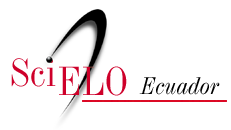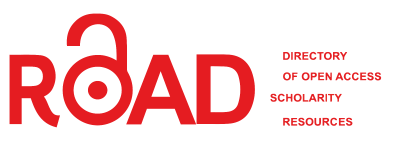The Ethical Values and its implications in the Administrative Management
DOI:
https://doi.org/10.26423/rctu.v3i2.156Keywords:
Ethical values, responsible attitude, work performance, transversality, personnel managementAbstract
The objective of this research is to determine the ethical values held by fourth-year students of Business Administration from the University of Guayaquil and its implications in Administrative Management. The problem arises from the observations made by the author of this article, students of the School of Management at the Faculty of Administrative Sciences at the University of Guayaquil in class processes. The methodology used corresponds to a field study of descriptive and explanatory type, instrument type data collection survey was applied to a population consisting of 120 students studying business management was used. The study results showed a low level in compliance with codes of ethics by students, the relationship between research variables proved to be positive very weak, which means that while the student to improve compliance with ethics in its courtly activity, evidenced in these better professional performance. The research concludes by proposing a number of strategies to provide students the opportunity to participate in training courses, workshops or lectures where knowledge among members of the university, planned and organized by the race share.
Downloads
References
Castañeda, G. (2007). El rol de las universidades en el contexto. Obtenido de http://www.revistanegotium.org.ve/pdf/8/Art4.pdf-
Mundin, R. (2007). La empresa ética: ¿un nuevo paradigma? Obtenido de www.revistas.unifacs.br/index.php/rgb/article/download/236/63.
Seijo, C., & Añez, N. (2008). La gestión ética en la administración pública: base fundamental para la gerencia ética del desarrollo. Obtenido de http://publicaciones.urbe.edu/index.php/cicag/article/view/540.
Bautista, D. O. (2012). La superación de la crisis de valores y violencia en la sociedad contemporánea. Obtenido de http://www.redalyc.org/pdf/676/67622579006.pdf
López, R. (2013). Ética profesional en la educación superior. Obtenido de http://www.scielo.org.mx/scielo.php?script=sci_arttext&pid=S0185-26982013000400015
Ibarra, C. (1998). Elementos fundamentales de la ética. Ciudad de México: Jogman de México, C.A.
Rama, C. (2014). Ética y educación superior en el contexto de la mercantilización. Obtenido de http://www.uninter.edu.mx/rsu/doc/marco_conceptual/EticayEduSuperiorenelContextodelaMercantilizacion.pdf.
Annello, J., & Hernandez, V. (1998). Liderazgo Moral. Obtenido de http://repositorio.ute.edu.ec/bitstream/123456789/3110/1/52071_1.pdf
Llanos Cifuente, C. (1994). Dilemas éticos de la empresa contemporánea. México: Fondo de Cultura Económica.
idem [6] Ibarra, C. (1998). Elementos fundamentales de la ética. Ciudad de México: Jogman de México, C.A.
Schein, E. (1988). La Cultura empresarial y el liderazgo. Una visión dinámica. Barcelona: Plaza y Janes.
Diaz Barrios, J. (1999). La ética en la gerencia, vista a través del desarrollo organizacional. Revista Venezolana de Gerencia. LUZ. Vicerrectorado Académico, 57.
Garcia, S., & Dolan, S. (1997). La dirección por valores. Madrid: McGraw Hill.
Downloads
Published
Issue
Section
License
El titular de los derechos de autor de la obra, otorga derechos de uso a los lectores mediante la licencia Creative Commons Atribución-NoComercial-CompartirIgual 4.0 Internacional. Esto permite el acceso gratuito inmediato a la obra y permite a cualquier usuario leer, descargar, copiar, distribuir, imprimir, buscar o vincular a los textos completos de los artículos, rastrearlos para su indexación, pasarlos como datos al software o usarlos para cualquier otro propósito legal.
Cuando la obra es aprobada y aceptada para su publicación, los autores conservan los derechos de autor sin restricciones, cediendo únicamente los derechos de reproducción, distribución para su explotación en formato de papel, así como en cualquier otro soporte magnético, óptico y digital.













